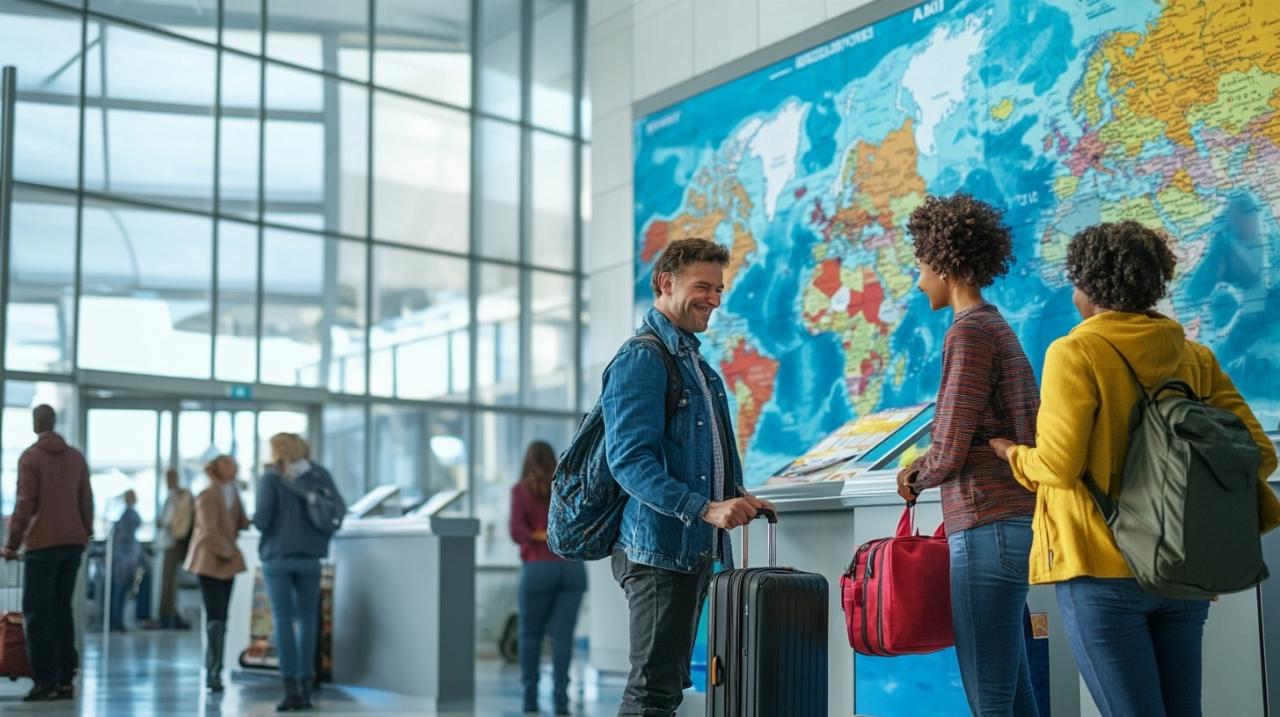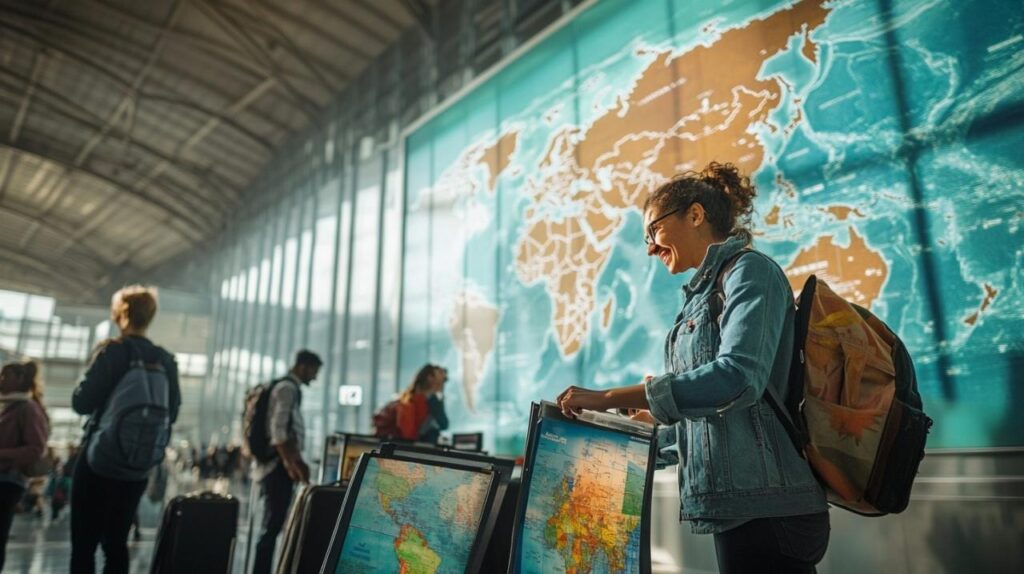Travelling can be both exhilarating and overwhelming, but with the right preparation, you can ensure your journey flows smoothly from start to finish. Whether you’re planning a weekend city break or a month-long adventure abroad, these essential tips will help you navigate the complexities of travel with confidence. At 4travelinfo.com, we’ve compiled comprehensive advice based on experiences from seasoned travellers who have visited more than 50 countries, ensuring you’re well-prepared for whatever your journey might bring.
Pre-travel preparation
Sorting your documents
Getting your travel documents organised well in advance is crucial for stress-free travel. Ensure your passport is valid for at least six months beyond your return date, as many countries enforce this requirement. Apply for any necessary visas with plenty of time to spare, as processing can take weeks in some cases. Booking confirmation emails, travel insurance details, and accommodation information should all be easily accessible during your journey. Many experienced travellers recommend creating digital backups of these documents and storing them in cloud storage for easy access regardless of where you are.
Currency and financial planning
Financial preparation is essential for smooth travels. Exchange some money into local currency before departure to cover immediate expenses upon arrival, such as transportation from the airport to your accommodation. However, don’t convert too much, as exchange rates are often better abroad. Consider using travel-friendly bank cards that offer favourable foreign transaction fees. Financial experts suggest carrying at least £800 (approximately $1,000) in small denominations for emergencies, especially when visiting regions where card payments might not be widely accepted.
Packing strategies
Minimalist packing techniques
The art of packing light can transform your travel experience. Opt for versatile clothing items that can be layered and mixed to create different outfits. Select lightweight, quick-drying fabrics that can be washed and worn again during your trip. A light waterproof jacket, comfortable walking shoes, and an umbrella are essentials that many travellers overlook. Remember that most destinations allow you to purchase toiletries and other basics locally, often at lower prices than at home. Avoid overpacking by creating a list of absolute essentials and then removing at least three items before finalising your luggage.
Document backup solutions
Creating backups of essential documents provides peace of mind during your travels. Take photographs of your passport, visa, insurance details, and booking confirmations. Store these images in multiple locations: on your phone, in secure cloud storage, and send copies to a trusted friend or family member. Some travellers also carry physical photocopies stored separately from the originals. This redundancy ensures that even if your primary documents are lost or stolen, you can still access the information and arrange replacements more easily.
Communication whilst abroad
Mobile phone considerations
Staying connected during your travels is easier than ever, but requires some forethought. Before departure, check if your current mobile provider offers reasonable international roaming packages. If not, purchasing a local SIM card upon arrival can save you significant money on data and calls. Popular tourist destinations often have SIM card vendors right at the airport. For those travelling to remote areas with unreliable cellular service, consider renting a satellite phone or messenger device. Download offline maps and translation apps before your journey to ensure you can navigate and communicate even without an internet connection.
Learning basic local phrases
Taking time to learn a few key phrases in the local language can significantly enhance your travel experience. Simple greetings, thank you, please, and basic numbers can help you navigate markets, restaurants, and transportation with greater ease. Locals often appreciate the effort, even if your pronunciation isn’t perfect, and this small gesture can open doors to more authentic experiences. Free language apps make it simple to learn and practice these essential phrases before and during your trip, allowing you to build your vocabulary as you travel.
Cultural awareness
Researching local customs
Understanding the cultural norms of your destination is vital for respectful travel. Research appropriate dress codes, particularly for religious sites where covering shoulders, knees, or hair might be required. Learn about local dining etiquette, tipping practices, and greeting customs before arrival. Some cultures have specific taboos regarding photography, physical contact, or certain conversation topics. Taking time to understand these nuances demonstrates respect and helps avoid unintentional offence. Travel guides, cultural websites, and even social media groups focused on your destination can provide valuable insights into these cultural expectations.
Respectful interaction tips
Genuine interactions with locals can become the highlight of your journey when approached with respect and curiosity. Ask permission before taking photographs of people, especially in more traditional communities. When visiting markets or shops, learning the art of friendly negotiation appropriate to the culture can enhance the experience for both parties. If invited into someone’s home, observe what others do regarding shoes, seating arrangements, and accepting refreshments. Remember that patience and a sense of humour can help bridge cultural differences and turn potential misunderstandings into memorable connections.
Safety and protection
Personal security measures
Maintaining awareness of your surroundings is the foundation of travel security. Avoid displaying expensive items or large amounts of cash in public. Use front pockets and zippered bags to deter pickpockets, particularly in crowded tourist areas. When exploring a new destination, walk confidently and purposefully, even if you’re unsure of directions. Consider walking just 100 meters away from main tourist areas to find more authentic experiences and better prices on food and souvenirs. Trust your instincts—if a situation feels uncomfortable, remove yourself politely but firmly. Remaining courteous during interactions with officials at checkpoints or borders can prevent unnecessary complications.
Insurance and emergency planning
Comprehensive travel insurance is non-negotiable for responsible travel. Ensure your policy covers medical emergencies, trip cancellations, and lost luggage at minimum. Carry digital and physical copies of your insurance details, including emergency contact numbers. Research the location of the nearest embassy or consulate at your destination, as well as local emergency numbers. For medical concerns, pack a basic kit including gastrointestinal remedies, painkillers, and any prescription medications you require. Inform someone reliable of your itinerary and check in regularly, particularly when travelling solo or to remote areas.
Embracing the experience
Staying flexible during your journey
While planning is essential, allowing room for spontaneity often leads to the most memorable travel experiences. Consider booking only your first few nights of accommodation, giving yourself the freedom to extend your stay or move on based on how you connect with a place. This flexibility allows you to accept unexpected invitations or discover hidden gems not mentioned in guidebooks. Experienced travellers often recommend building buffer days into your itinerary to accommodate transportation delays or to simply relax and process your experiences before moving to the next destination.
Making lasting memories
The most valuable souvenirs are the stories and connections you gather along the way. Take time to engage with locals beyond transactional interactions—offer to take photos for them, ask questions about their daily life, or participate in community activities when appropriate. Document your journey through journals, photographs, or voice recordings to preserve the details that fade from memory. Consider seeking out experiences that engage all your senses, whether it’s a cooking class, a traditional music performance, or simply sitting in a local café observing daily life. These immersive moments often become the stories you’ll share for years to come.

